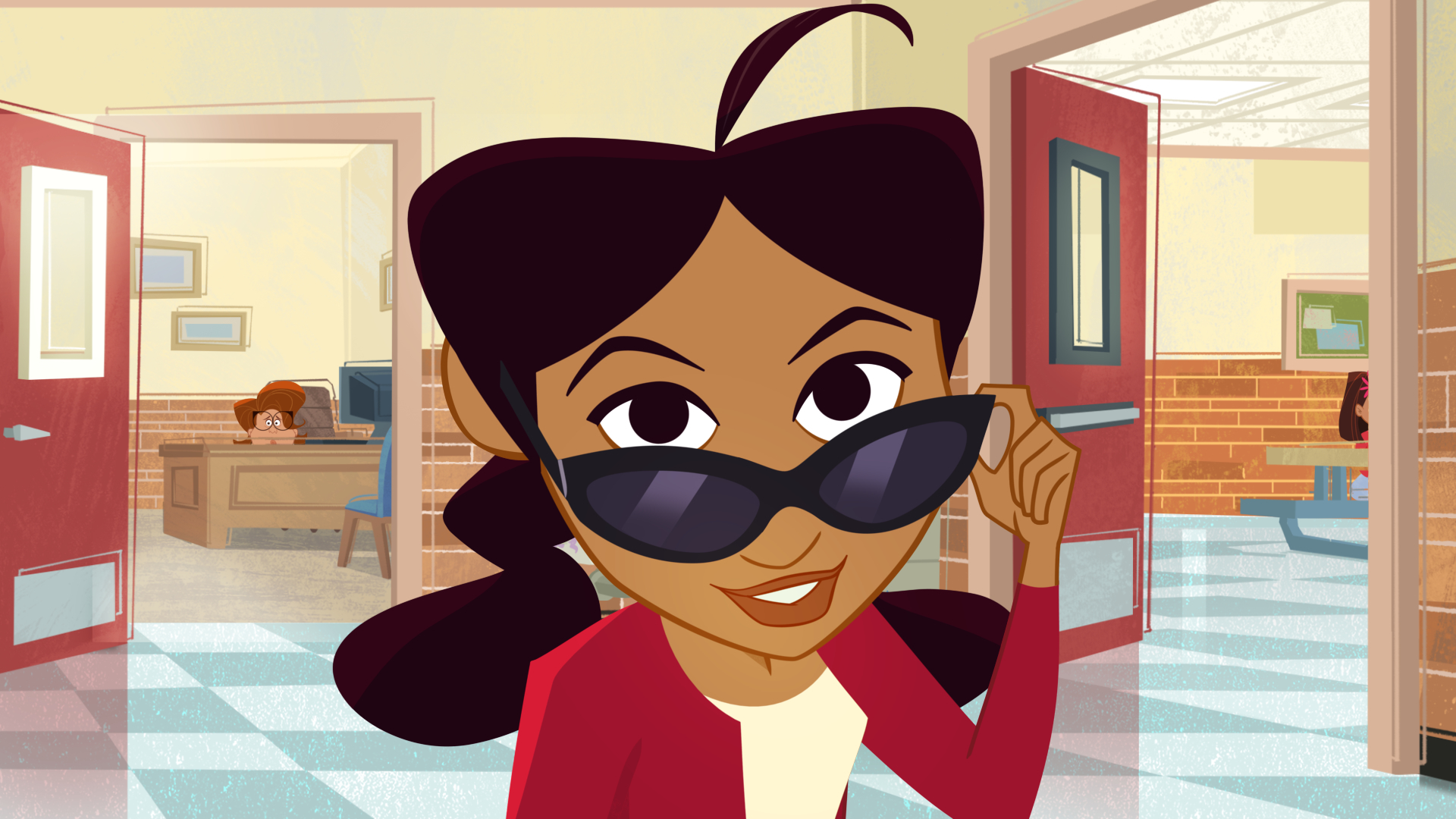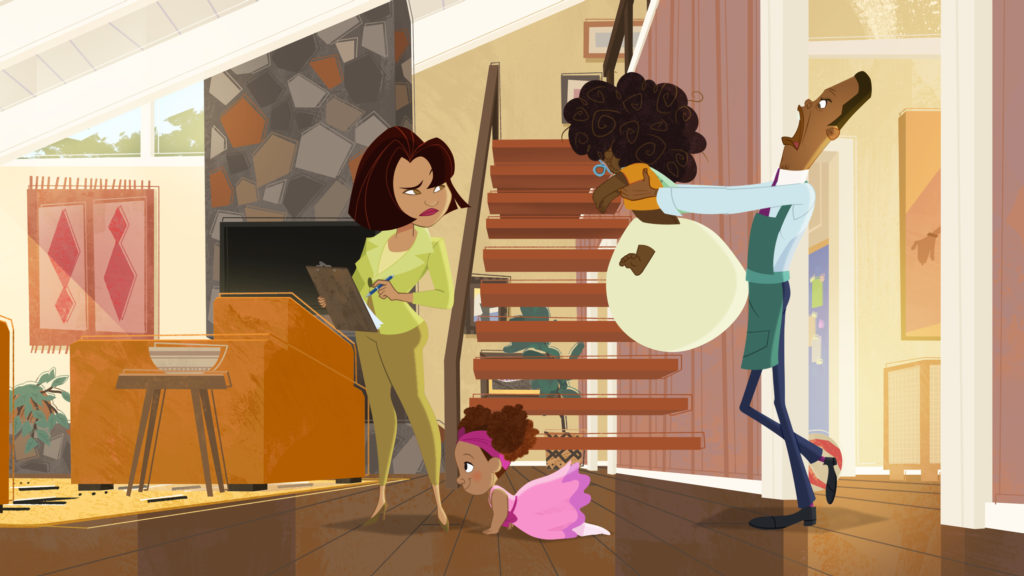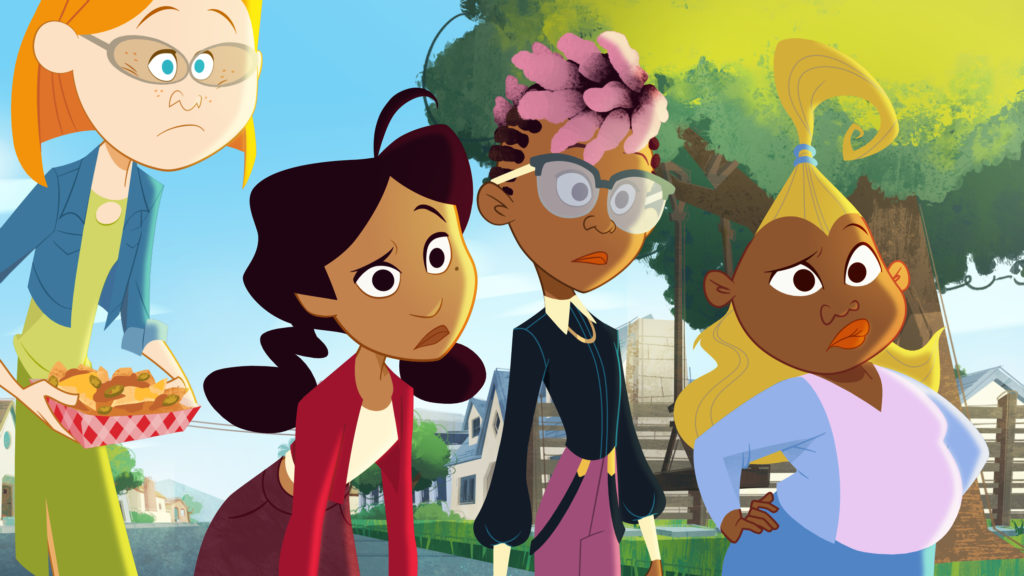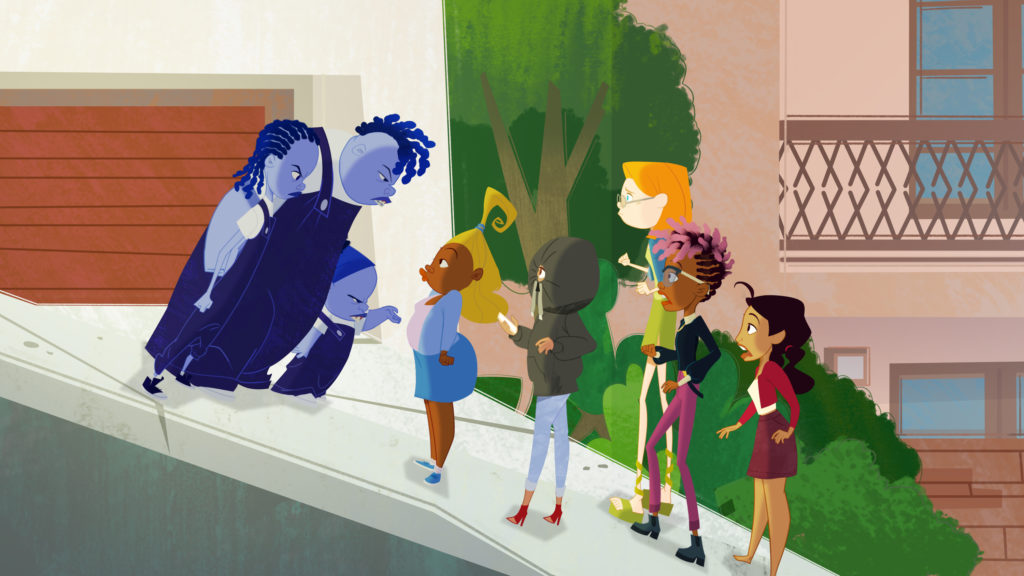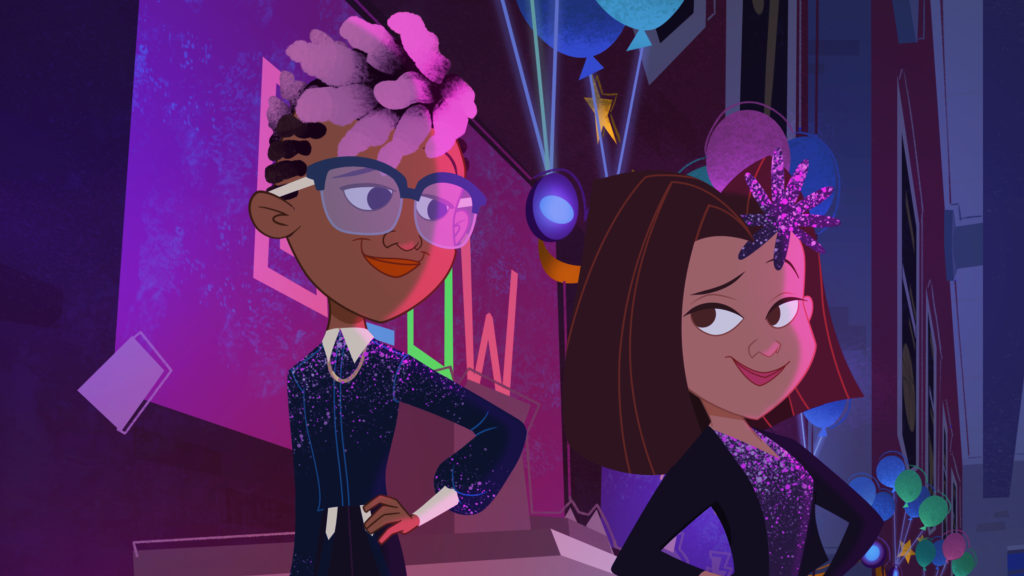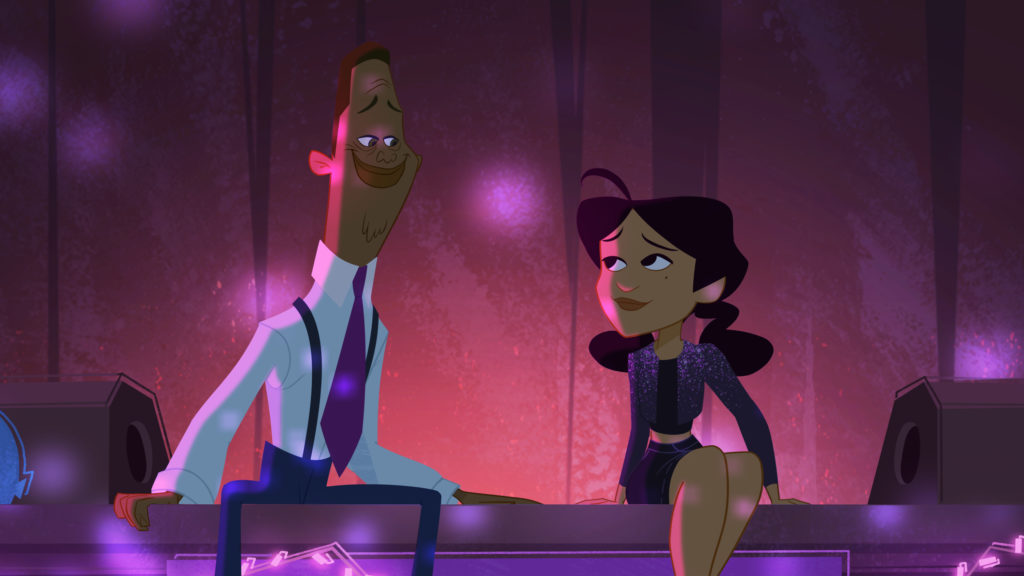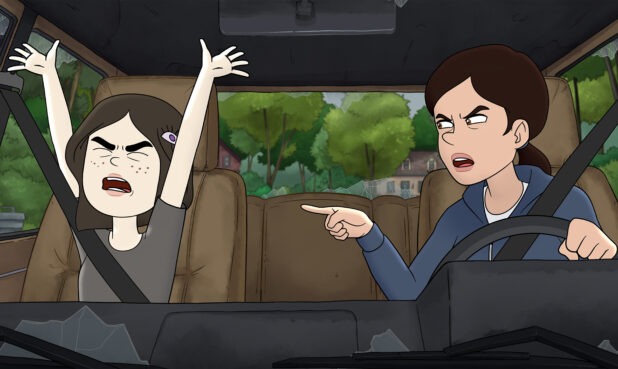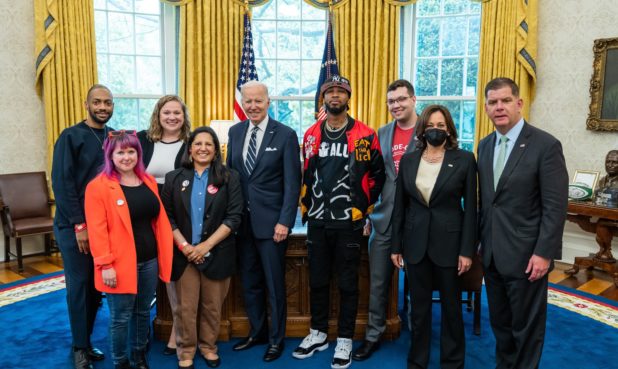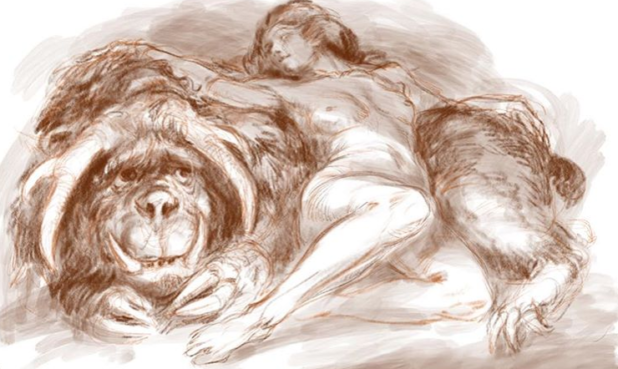How is The Proud Family: Louder and Prouder different from the original?
Smith: The difference lies in the content. The first time we did the show, we were really trying to dive into the substance of storytelling that deals in the Black experience. That was something you didn’t really see on the Disney Channel, and in a lot of ways we had to speak in codes and metaphors and such. Now, the Black experience is not just one thing, but at the same time, we collectively decided that we really wanted to lean in on issues that Ralph and I thought mattered to us.
Farquhar: This time around, we’re reaching out to the entire family. It’s 6 to 60s, so we have something in it for everyone. In terms of the general audience, even beyond our Blackness, it’s delving into topics that are of interest and concern to young people and to families. We delved into issues of race and gender the first time around, but as Bruce said, we had to speak in code. This time around we have LGBTQ characters. Michael as a character is a major upgrade, if you will, from an authentic voice factor to the character design, which reflects his gender fluid nature. And including storylines that allow him to exist without having to make a Very Special Episode. I think a lot of the way The Proud Family has changed can be simply described as ‘we just are.’ We just reflect the world as it is.
Describe some of the ways you’ve been able to speak more truthfully in the sequel.
Smith: I love how a lot of our characters are true because they recognize who they are as individuals. Speaking on racial issues and stuff like that is something we did very well the first time around, like the “I Had a Dream” episode where Penny knocks her head and goes back to 1950 and discovers that [she could not be best friends with Zoey because she was white]. We were a bit more straightforward and on the nose with that episode, but it was something that didn’t exist [regularly] within the girls’ circle. Now, we deal with those things head-on and often enough because this is where the girls’ world is right now. We also bring in talk about social media topics, and how social media affects all the teenagers at this age, because social media wasn’t a thing when we did the first version of the show.
Farquhar: In the beginning, believe it or not, there was a lot of push-back from the network about [the grandmother] Suga Mama being too mean. In the interim she’s become arguably the most popular character in the show. Now we get to lean into that Black family dynamic, especially in the relationship between the grandparent and the child. In a way, because we’re on Disney+, we’re allowed to be a little more sophisticated. A little more in-your-face with topics.
What do you hope audiences will take away from this new version of The Proud Family?
Smith: I think what we do, which is great, is we set the table for families to have that conversation. That’s what makes family viewing the important component in the show. Because all the things we talk about—we don’t just simply close the idea and wrap it up in 22 minutes. We leave areas that are open for discussion.
All the characters are different, and all the characters evolve. Penny Proud is flawed, so she’s learning along the way with everyone else. I think understanding the strength of Penny and the knowledge of Penny is something that adults can learn from. You learn how to listen to your kids. That’s what we say in the first episode, “Daddy, listen. Daddy, listen.”
We as adults sometimes have a sort of old school mentality. As Ralph mentioned, bringing in all these new elements, like the LGBTQ conversation—it’s something that families don’t have conversations [about]. Kids have the conversation among themselves, but do parents have those conversations with their kids? We’re setting the template for these conversations and for a safe place to have them.
Farquhar: We do an episode where we meet [new neighbors] Maya and KG’s other parent. It becomes apparent to everyone that Maya and KG have two dads—same sex parents. And it becomes an issue. Especially for [Penny’s dad] Oscar. You know, Oscar and Trudy have taught Penny to be accepting of people, and it’s Penny at the end who has to lead Oscar to the truth of the situation.
Smith: That’s why we say, there’s a lot to be learned when you truly understand how to talk to your kids. We also always thought we would speak to the universal. We always thought, given the right support, we can reach a multitude of audiences. Thankfully Disney saw that vision, as well.
Farquhar: By being specific, we speak to everyone. It sounds counterintuitive, but it’s true. Because everyone can sense when something is not honest or authentic. When it is, it allows everyone to buy in.
